Myths and Facts
Reverse Mortgage Myths and Facts
Listed below are the common myths followed by the facts of reverse mortgages that will bring clarity and assist you in making the most informed decision.
Myth:
You immediately sign over ownership to your home.
Fact:
You retain title to your home as long as you meet the loan guidelines and requirements such as: maintaining the property, paying all property charges such as property taxes, homeowners insurance, flood insurance, and homeowners association dues (if applicable), and avoiding extended absences from the home longer than six months.¹
Myth:
If you take out a reverse mortgage loan your children won’t be left with any of the home equity.
Fact:
While the amount of equity typically decreases over time with a reverse mortgage, it doesn’t mean there will be no equity left when the last borrower dies. There are several factors that go into how much equity will be left, such as home appreciation, length of the loan, and optional monthly payments. There can still be equity left for your children.
Myth:
Your children will be responsible for repaying the loan when you die
Fact:
A reverse mortgage is a non-recourse loan, meaning that the lender can only be repaid from the proceeds of the sale of the home and not more than the value of the home. That means even if the home decreases greatly in value, the maximum repayment amount can only be up to the value of the home. While your heirs will not be responsible for the loan repayment, they will still have the option to refinance the loan to purchase it for themselves.
Myth:
A reverse mortgage requires that you make monthly mortgage payments.
Fact:
While you can choose to make mortgage payments, they are not required with a reverse mortgage. The borrower is still responsible to maintain the property, pay property taxes, homeowners insurance, flood insurance, and homeowners association dues (if applicable).¹
Myth:
You must have your first mortgage paid off before you can qualify for a reverse mortgage.
Fact:
While any debt on your home’s title must be paid off at closing and you must have adequate equity in the property, it is not required that you own your home “free and clear” before getting a reverse mortgage.
Myth:
You are not allowed to sell your home if you have a reverse mortgage.
Fact:
You can sell your home if you wish and – just like any other mortgage loan – you must pay off the reverse mortgage at closing. There are also no prepayment penalties if you choose to pay off your loan early or make loan payments.
Some Additional HECM Loan / Reverse Mortgage Loan Facts
To qualify for a reverse mortgage loan there are some basic requirements, such as:
- Many retirees use a reverse mortgage.
- A reverse mortgage allows older homeowners to access a portion of the value of their home.
- A reverse mortgage is a specialized loan for homeowners 55 and older.
- A reverse mortgage is eligible only for the borrower’s primary or principal residence.
- Reverse mortgages that are FHA-insured (Home Equity Conversion Mortgages) are insured by the Federal Housing Administration providing protection for both borrowers, lenders and beneficiaries.
- HUD counseling (from an independent HUD-approved third-party counselor) is required prior to the borrower incurring any costs associated with the loan.
- The cash or proceeds you receive from a reverse mortgage typically are not subject to individual income taxation. However, we suggest you consult your tax advisor to provide guidance for your particular situation.²
- It is not a government grant, but a loan that is repaid in the future when the home is sold or the last borrower dies or permanently leaves their residence.²
- Reverse mortgage proceeds could affect government needs-based programs such as Medicaid and Medi-Cal. Those receiving such benefits should consult a professional before obtaining a reverse mortgage.
- A reverse mortgage loan is secured by a mortgage on the home and failure to comply with loan terms could result in foreclosure.
- It’s a specialized loan. However, program rates, fees, terms, and conditions are not available in all states and are subject to change.
¹There are some circumstances that will cause the loan to mature and the balance to become due and payable. The borrower is still responsible for paying property taxes, homeowner’s insurance and maintaining the property to HUD standards. Failure to do so could make the loan due and payable. Credit is subject to age, income standards, credit history, and property qualifications. Program rates, fees, terms, and conditions are not available in all states and subject to change.
²Borrowers should seek professional tax advice regarding reverse mortgage proceeds.
Get Pre-Qualified Today
Click here for our “5 minute assessment to see if you qualify for a reverse mortgage today.

